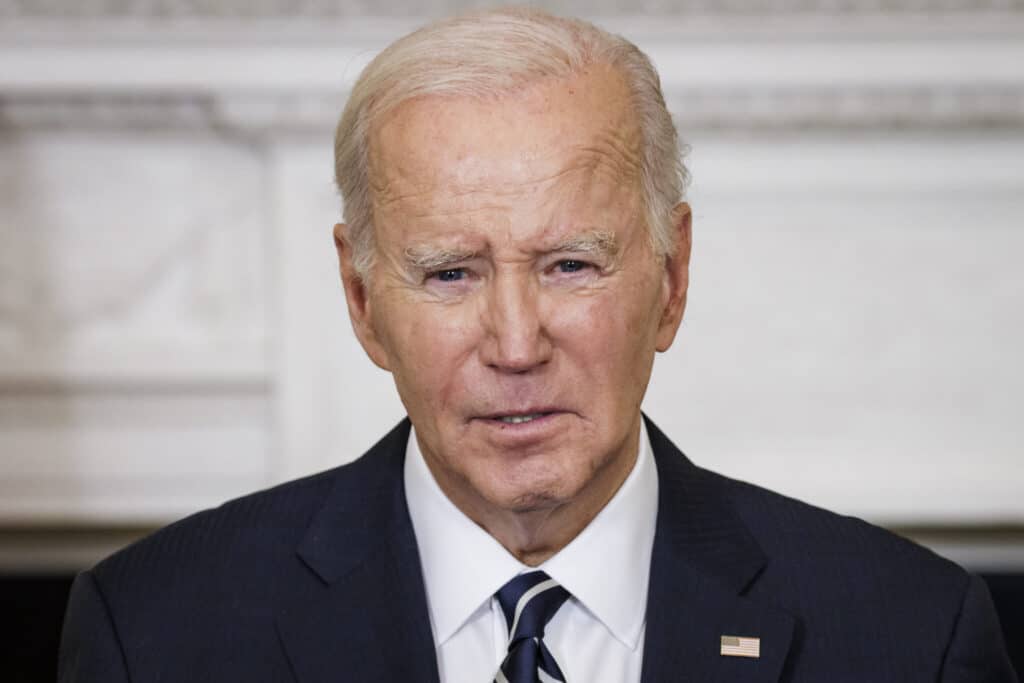Former President Joe Biden may no longer hold office, but according to his own account, his influence hasn’t faded behind closed doors. Speaking last week at the Society for Human Resource Management (SHRM) conference in San Diego, Biden hinted that international and domestic figures still seek his advice — a claim that has sparked both curiosity and skepticism.
In a conversation with SHRM President Johnny Taylor, Biden told the audience that leaders from Europe continue to reach out.
“I’m getting calls, I’m not going to go into it, I can’t, from a number of European leaders asking me to get engaged,”
he said.
“I’m not [getting involved], but I’m giving advice. Because things are different.”
The remark, shared in a widely circulated clip on social media by Democratic strategist Chris Jackson, showed the former president shifting between subdued, reflective tones and bursts of passionate rhetoric. At one point, Biden asked:
“If America doesn’t lead the world, who can?”
And then he added with emphasis,
“No, no, not a joke. Not because of power. Who can put it together?”
He also suggested that his influence extends across party lines, stating:
“I’m dealing with a lot of Democrats and Republican colleagues, all of them wanting to talk. Not because they think I have the answer, just to bounce things off me.”
But the moment that raised eyebrows came when Biden abruptly pivoted from policy talk to personal nostalgia:
“I’m also laying rubber with my ’67 Corvette on my driveway,”
he said, seemingly out of nowhere — a line that left many scratching their heads and others seizing the moment for criticism.
Political observers and critics were quick to dissect the event. Many questioned whether Biden’s claims reflected genuine backchannel influence or a self-aggrandizing view of his legacy. For some, the image of a former president claiming continued relevance while recalling drag-racing a classic car seemed to crystallize what they saw as his disconnect from current political realities.
Throughout his presidency, Biden faced mounting challenges that ultimately led to his decision not to seek re-election. High inflation, record gas prices, and persistent issues at the southern border weighed heavily on public opinion. His administration also contended with several controversies, including the impeachment of Homeland Security Secretary Alejandro Mayorkas and the intense scrutiny surrounding his son Hunter Biden, whose legal troubles and alleged influence-peddling became a lightning rod for political debate.
Further fueling the backlash were reports of preemptive pardons — notably those granted to Hunter Biden and Dr. Anthony Fauci — and concerns over the use of autopen signatures on sensitive documents. Most recently, a scathing ICE report revealed that the federal government had failed to properly vet sponsors for unaccompanied migrant children, leading to several tragic cases of abuse.
In light of these issues, Biden’s assertion that world leaders still rely on his counsel has been met with doubt by some analysts.
“Given the chaos, confusion, and credibility issues that dogged the final years of his presidency, the idea that foreign leaders are still seeking his wisdom is… bold,”
one political commentator noted.
To supporters, Biden’s remarks may suggest a desire to remain relevant and helpful, leveraging his decades of experience. To critics, however, it may read as another tone-deaf moment in a post-presidency marked by controversy and missteps.
Whether his words reflect reality or an attempt to reshape public perception, one thing is clear: Joe Biden’s political story — and its impact on both the national and global stage — continues to stir debate, even after his time in office has ended.






